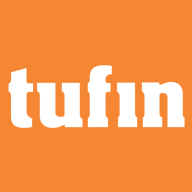

Skybox Security Suite and Cisco Security Cloud Control compete in the field of comprehensive security solutions. Skybox seems to have the upper hand when it comes to scalability and detailed compliance checks, while Cisco stands out for its ease of integration and centralized management.
Features: Skybox Security Suite focuses on Change Tracking, Access Analyser, and strong firewall configuration compliance. It also provides effective vulnerability management and supports devices from numerous vendors. Cisco Security Cloud Control's standout features include centralized device control, automation capabilities, and the ability to execute bulk changes efficiently.
Room for Improvement: Skybox Security Suite could enhance its user interface by moving more functionalities to a web-based console and improving reporting features. Better integration with third-party vulnerability tools is also needed. Cisco Security Cloud Control has room for improvement in user interface navigation, reporting capabilities, and increasing its third-party integration to improve overall usability.
Ease of Deployment and Customer Service: Skybox Security Suite offers flexibility with on-premises and hybrid cloud configurations. It is generally supported well, though there are response delays noted. Cisco Security Cloud Control offers efficient public and private cloud deployments and is known for faster initial support interaction. Both solutions need to enhance support responsiveness and integration ease.
Pricing and ROI: Skybox Security Suite is critiqued for its high pricing but justified by users for its robust features and scalability across large networks. Licensing can be complex, yet it provides substantial value. Cisco Security Cloud Control offers competitive pricing within the Cisco ecosystem but can be costly with non-Cisco integrations. Both systems provide significant ROI, especially in environments with multiple firewalls and diverse vendor products, though Cisco's solution is more advantageous within a comprehensive Cisco environment.
| Product | Market Share (%) |
|---|---|
| Skybox Security Suite | 9.5% |
| Cisco Security Cloud Control | 1.5% |
| Other | 89.0% |


| Company Size | Count |
|---|---|
| Small Business | 6 |
| Midsize Enterprise | 3 |
| Large Enterprise | 6 |
| Company Size | Count |
|---|---|
| Small Business | 21 |
| Midsize Enterprise | 4 |
| Large Enterprise | 20 |
Cisco Security Cloud Control offers centralized management, real-time visibility, and AI-driven automation for on-premises and cloud environments, simplifying scalability and deployment.
With a unified approach, Cisco Security Cloud Control enhances security posture by providing cross-platform insights across Cisco's ecosystem. It accelerates threat detection and optimizes policy enforcement through a blend of AI automation and natural language querying capabilities. The intuitive platform serves multiple devices, enabling comprehensive management of Secure Firewall, Secure Access, and other services with guidance from the Cisco AI Assistant. It also includes an AI Operations feature that identifies critical issues and provides real-time insights, enhancing response times while a policy analyzer improves security hygiene by detecting and closing security gaps. Its automation minimizes manual tasks, secures cloud-stored configurations, and supports two-factor authentication. However, it could benefit from improvements in navigation clarity, bulk change handling, and expanded third-party integrations.
What are the key features of Cisco Security Cloud Control?Industries implementing Cisco Security Cloud Control leverage its capabilities for tasks ranging from firewall management to intrusion prevention. Enterprises use it to streamline policy management, automate configurations, and integrate Cisco devices with cloud strategies, benefiting from simplified security orchestration and network segmentation.
Skybox Security Suite provides comprehensive tools for network and firewall compliance, vulnerability management, and change management, with a focus on risk reduction and network optimization.
Skybox Security Suite supports over 130 vendors with massive scalability and seamless integration, notably with Nessus and Qualys. Its features include network path analysis and offline attack simulation, which enhance management effectiveness. Despite its robust offering, improvements are needed in its UI, web interface, reporting detail, and customization. Automation, orchestration, and device policy provisioning require better support, and integration with tools like Rapid7 could be improved. Enhancements in firewall configuration checks, cloud connectivity, pricing, and marketing awareness are also called for, alongside a transition from Java GUI to a consistent web-based system.
What Are Key Features of Skybox Security Suite?Skybox Security Suite is commonly used in industries requiring strict compliance like finance and healthcare. Firms employ it for firewall audits, enhancing network visibility, and managing configurations against standards such as PCI, ensuring security and policy compliance across expansive networks.
We monitor all Firewall Security Management reviews to prevent fraudulent reviews and keep review quality high. We do not post reviews by company employees or direct competitors. We validate each review for authenticity via cross-reference with LinkedIn, and personal follow-up with the reviewer when necessary.